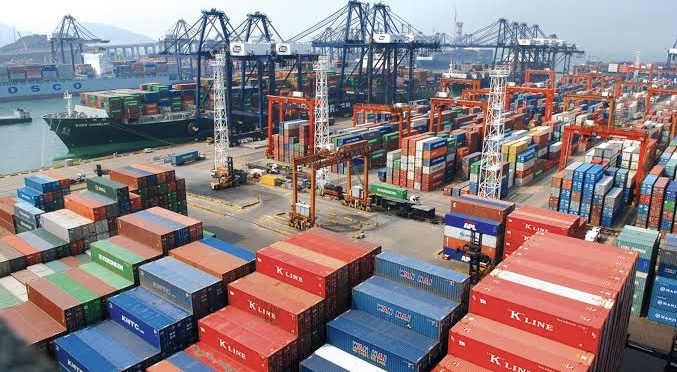In a move to enhance the competitiveness of the nation’s ports, the Nigerian Ports Authority (NPA) said it has secured approval for a 15% tariff increase, the first adjustment since 1993.
But the increase seems not to go down well with manufacturers who warned that it would worsen the already bad operating cost in the economy.
Disclosing the impending increase in charges, NPA’s Executive Director in charge of Marine and Operations, Olalekan Badmus, who represented the Managing Director, Abubakar Dantsoho, at a stakeholders’ meeting in Lagos, however, emphasized the importance of improving efficiency at the ports while also engaging stakeholders in its decision-making process.
According to him, the review aims to address aging infrastructure, obsolete equipment, and slow port expansion, which have hindered efficiency and competitiveness, adding that global port authorities rely on operational revenue to fund critical functions, including infrastructure maintenance, channel dredging, port security, digitalization, and workforce development.
“This belated tariff review, borne out of necessity, is a critical step in Nigeria’s quest to regain lost cargo traffic and the economic benefits that come with it,” he stated.
Dantsoho noted that with the tariff adjustment, NPA aims to position Nigerian ports as globally competitive trade hubs, ensuring long-term sustainability and economic growth.
He maintained that contrary to claims that high port costs are due to NPA charges, its tariffs remain among the lowest in the region, rather blaming inefficiencies at the ports on factors such as excessive human interference, bureaucratic bottlenecks, and the absence of a Port Community System (PCS).
Reacting to the development however, the Apapa Chapter of the Manufacturers Association of Nigeria, MAN, kicked against the move saying that it will worsen the financial burden on manufacturers.
Chairman of the Chapter, Mr. Cyprian Orakpo, said for manufacturers, port-related charges will constitute significant indirect costs, as most raw materials and industrial machinery are imported through the ports.
He stated: “MAN expresses grave concern over the proposed 15% increase in port-related charges by NPA. At a time when businesses are grappling with the rising cost of operations, foreign exchange volatility, high energy costs, and general economic uncertainties, imposing additional financial burdens on manufacturers through increased port tariffs will exacerbate the challenges faced by the real sector.
“Ports are the gateway to international trade and play a crucial role in the efficiency and cost-effectiveness of business operations.”
According to MAN, increasing tariffs in the current economic climate will have dire consequences as it could lead to higher prices of goods and inflation, reduced competitiveness of Nigerian manufacturers in local and international markets, increased smuggling due to high costs at Nigerian ports compared to neighboring countries and decline in government revenue due to lower cargo throughput and manufacturing downturn.
“Rather than imposing additional financial burdens on businesses, we propose a stakeholder dialogue to explore strategies for enhancing port efficiency, reducing operational bottlenecks, and creating a more business-friendly environment that will ultimately lead to increased revenue without undermining industrial growth,” he added.
